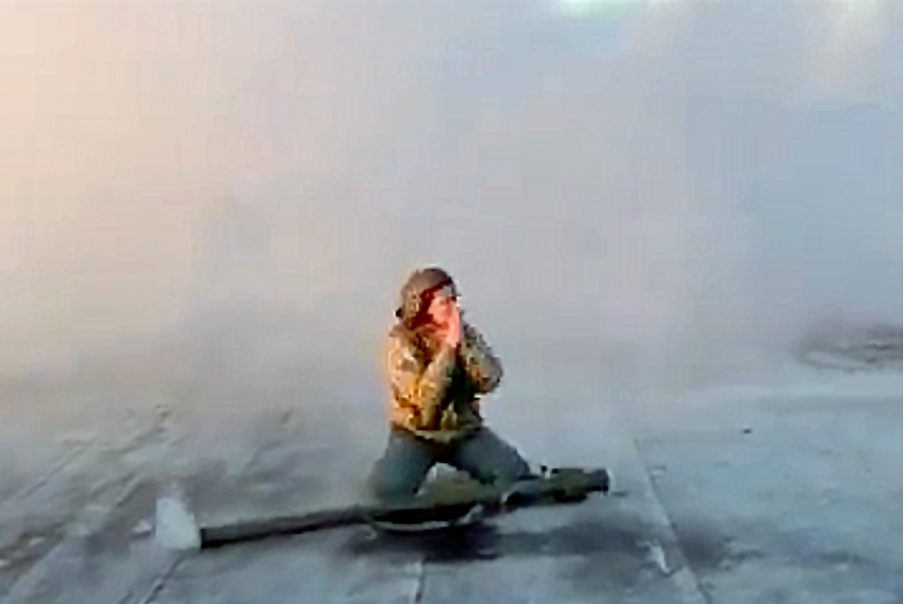Belarusian President Aleksandr Lukashenko celebrates his 70th birthday today, Aug. 30, 2024.
Often referred to as “the last dictatorship in Europe” by Western media, Lukashenko’s thirty year rule of the country which officially began in 1994, has been marred by an endless stream of human rights abuse allegations and political oppression, which his supporters have hailed as the necessary means to maintain stability, while dissidents say it has led to economic stagnation.
JOIN US ON TELEGRAM
Follow our coverage of the war on the @Kyivpost_official.
No less controversial are statements he has made over the years that have defined his regime, are seen with both humor and bafflement by many.
“It’s better to be a dictator than gay.”
Lukashenko made the statement in 2012 in response to Western categorization of his regime as being a dictatorship.
Former German Foreign Minister Guido Westerwelle, one of the first German ministers to openly admit to being homosexual, was one of the first to call Lukashenko “the last dictator in Europe.”
Lukashenko, notorious for his highly conservative values, upbraided Berlin in turn by reminding Westerwelle of Germany’s Nazi past saying it was better to be a dictator than to be gay.
“Our ‘dictatorship’ does not prevent anyone from living and developing.”
On the topic of dictatorship, Lukashenko himself acknowledged in 2008, perhaps with a hint of irony, that he was deserving of the title.
In that year, a few days before the Belarusian parliamentary elections, Lukashenko sought to normalize his regime’s relationship with the EU – a sporadic effort that would persist throughout his presidency – by highlighting the common goals and values shared by both Minsk and the EU.

‘Cannot Be Treated Seriously Yet’ – Expert on New US Provision of Antipersonnel Mines to Ukraine
“Our ‘dictatorship’ does not prevent anyone from living and developing. On the contrary, we are an obligatory partner for you, solving many problems for Western Europe,” Lukashenko said at the time in reference to the fight against illegal migration, illegal drug trafficking and controlling nuclear components.
He also called himself a dictator at his annual address in 2020 to the applause of those in attendance.
“Yes, we… we rigged the last elections.”
In 2006, Lukashenko appeared to admit that his regime fixed the elections.
Speaking to Ukrainian media representatives at a PR campaign, Lukashenko, in a potential slip of the tongue, made another puzzling statement in response to Western allegations that the elections weren’t fair or transparent.
“We rigged the last elections. 93.5 percent voted for President Lukashenko, but they say that this is not a European percentage. We made it 86 [percent]. It is true,” he said.
‘We must, in short, undress and work.’
In 2016, in his attempt to make a speech in Belarusian – the country’s national language that he previously appeared to openly despise – Lukashenko mispronounced the Belarusian phrase for “to develop” with that of “to undress,” in a blunder that his critics soon leapt upon.
In a tongue-in-cheek campaign, Belarusians began to publish naked photos of themselves at their workplaces as they said they were heeding their president’s call.
In 2014, Lukashenko surprised locals with an official speech in Belarusian instead of his preferred Russian. Some believed it was an act to assert his autonomy from Russia following the latter’s annexation of Crimea in Ukraine.
“Belarusians should cling to Lukashenko even in the most critical situation like a drowning man to a straw, because Lukashenko has never betrayed and will never betray. Never!”
Lukashenko made the statement in 2011 for Russian journalists – and the quote was included in an official press release from Lukashenko’s office.
Similar to other authoritarian regimes, the cult of personality is an integral part of Lukashenko’s rule, with statements often alluding to Lukashenko’s importance for the statehood of Belarus, portraying himself as a savior who leads the nation to prosperity.
However, equating himself to a straw might not have that desired effect.
“We need a couple of billion dollars of cheap money.”
In 2012, Lukashenko appealed to Moscow for economic aid and, while meeting with Belarusian university students, described a few billion dollars as “cheap money.”
“If we are brothers, we need help. We need a couple of billion dollars of cheap money, these are commercial loans for the modernization of enterprises.
“I held difficult negotiations on Dec. 18-19 in the Russian government and with the president, there were many issues. We discussed issues, including financial ones,” Lukashenko told students of the Belarusian State University of Informatics and Radio-electronics at the time.
Whether a few billion dollars is considered cheap money would be a subject of debate.
“Putin is a colonel, he promised to appoint me as colonel. He still hasn’t done it.”
Lukashenko said Russian President Vladimir Putin promised to make him a colonel in the Russian Army to the amusement and bemusement of his interviewer.
The interview, published on Feb. 7, 2022 – roughly two weeks before Russia’s full-scale invasion of Ukraine – had the interviewer questioning how it would work for the Belarusian head of state to become a colonel of a foreign army.
Lukashenko responded sternly by saying, “So what? It’s my problem. Not yours.” He then added that he served in the Soviet Army and thus was eligible to receive the title.
Lukashenko is also known for his nostalgia for all things Soviet, which is manifested in many of his social and economic policies.
You can also highlight the text and press Ctrl + Enter






